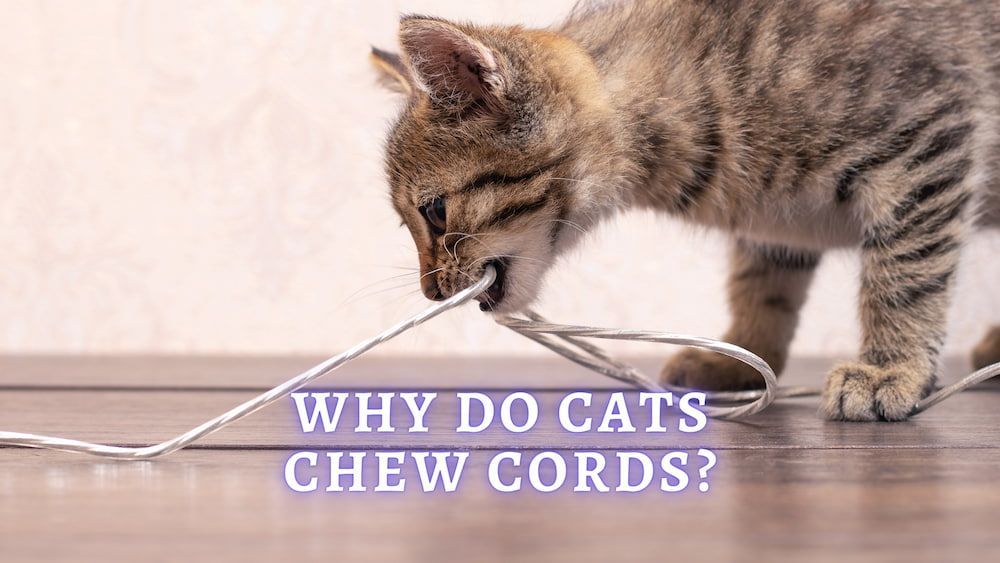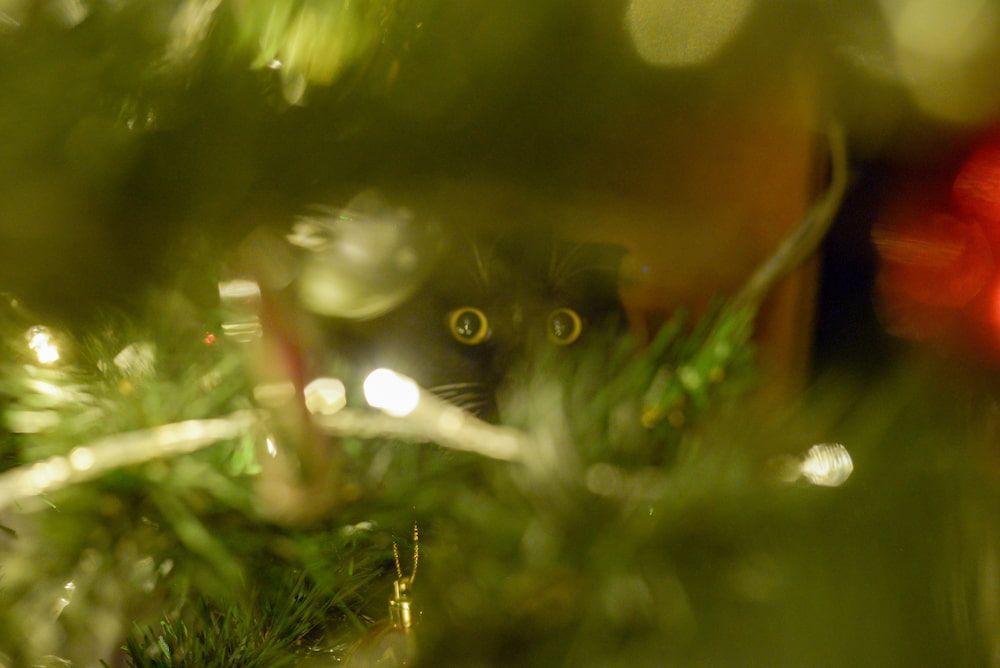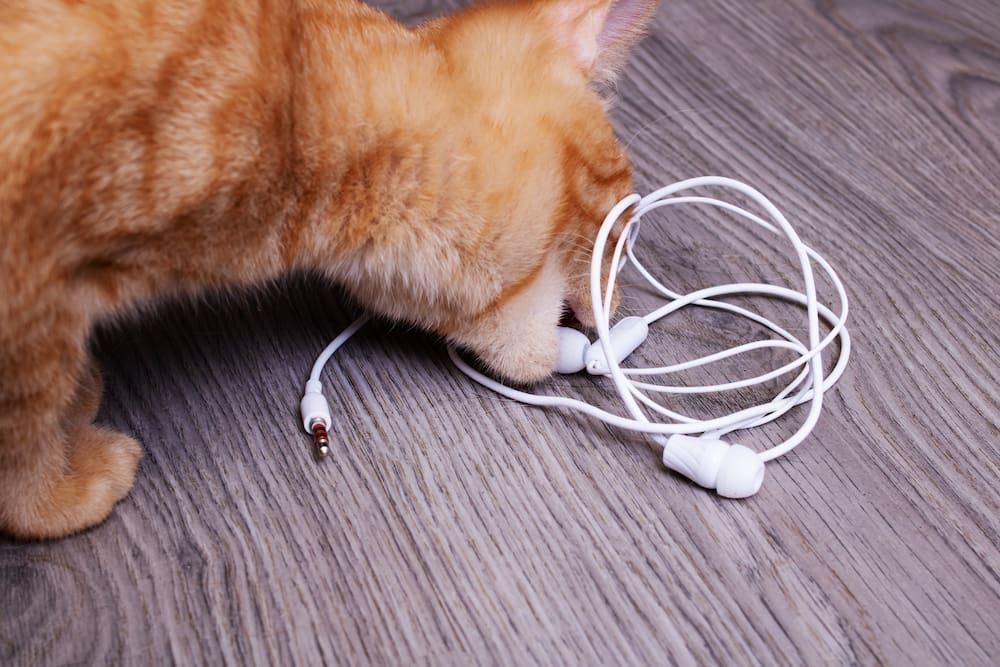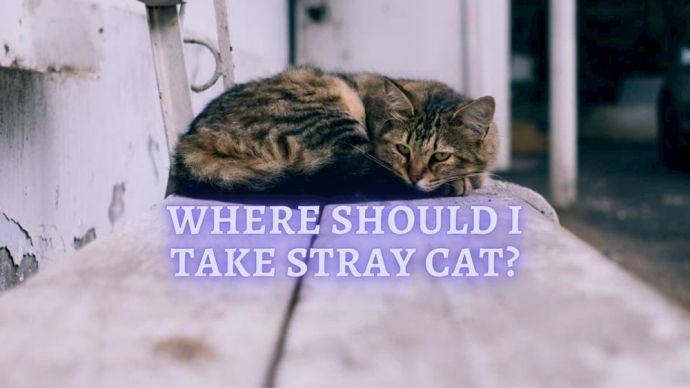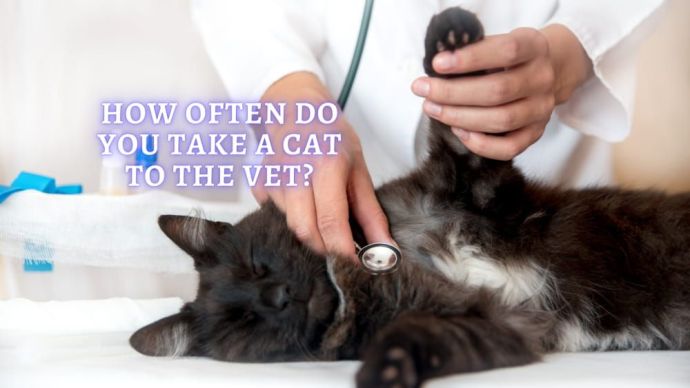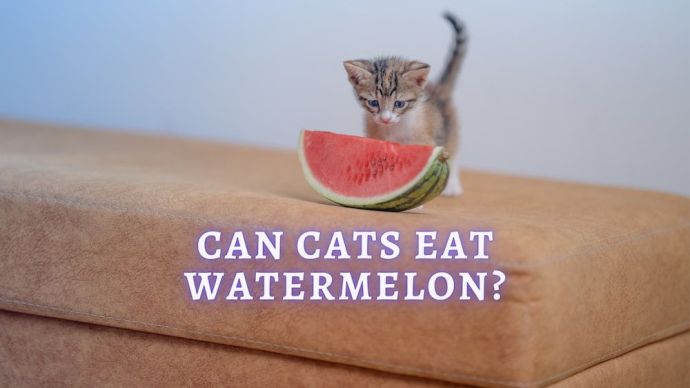Why Do Cats Chew Cords? 6 Reasons Why And How To Stop It
Written by:
Author: Carol Young
Carol has worked in specialty, emergency, mixed animal and general veterinary practices, and enjoys all aspects of veterinary medicine. Her special areas of interest include anesthesia, critical care, emergency, dentistry, internal medicine and small animal nutrition.
View all 62 articlesLearn about our editorial process and veterinary review board.
Viewed: 59
Updated on: 12/28/2022
Cats are curious by nature, especially kittens and young felines, and often they can gnaw and chew on electrical cords. The sad news is that veterinarians see electrical burns from cats who chew on electrical cables and wiring. In some cases, such injuries can lead to electrocution or death. Also, chewing on cords can pose a household fire risk, putting owners, family members, and other pets at risk.
Suppose you are a cat owner and are concerned or curious about why your pet chews on electrical cords. In that case, there may be several reasons why your feline friend is drawn to such a potentially dangerous activity.
1. Age
Kittens and cats younger than two years old are by nature active, curious, and can be just plain “hyper.” Young pets have a strong urge to chew while their adult teeth are coming in and keep in mind that cats under two years old may be more prone to injuries and burns related to an electrical cord chewing.
2. Boredom
Your pet could be bored, and looking for something to entertain himself. We know that cats like to play with string and yarn, and an electrical cord probably looks the same to a pet. Try offering interactive toys and puzzles to keep your cat stimulated and “cat-proof” any electrical wires and outlets.
3. Curious
We all know pets are curious and always explore their surroundings and environment. This includes investigating electrical and other items like Christmas lights and appliance cords.
4. Health Problems
Cats with certain health issues may chew electrical cords, but in most cases, pets who are older, or have health problems such as renal insufficiency or diabetes may not feel up to chewing on cords. Contact your veterinarian if your cat likes to chew on wires. Your veterinarian can rule out any potential health reasons for this dangerous behavior.
5. Poor Diet
Sometimes pets eat non-food items if they lack certain nutrients or elements in their diet. Although chewing electrical cords may be more behavioral than physiological, it is important to rule out diet causes. For example, ensure that you feed your feline friend a balanced diet containing all the essential nutrients, minerals, and amino acids. If you have questions, consult your veterinarian.
READ MORE: How do I know if my Cat is Malnourished?
6. Boredom
As mentioned above, bored pets may chew on ropes. Cats, especially younger cats and kittens, are naturally very busy, curious, and always exploring their surroundings. To prevent cord chewing, ensure that your pet has plenty of toys, puzzles, and interactive pursuits to keep him occupied. If your pet moves towards a cord, distract him with a treat, a toy, or some playtime. Another solution would be to cat-proof the electrical cords in your home.
RELATED: Do Cats Get Bored?
Do cats grow out of chewing wires?
Older pets may not be prone to chew ropes as much as younger ones, but it all depends on the individual cat. Sure, cats grow out of annoying behaviors such as chewing on household items, yarn, or even shoes, but that doesn’t mean that a cord won’t be attractive to a curious pet. Each cat is different, and behaviors should be monitored regularly.
What are the Dangers of Cats Chewing on Wires & Cords?
Chewing on electrical cords can result in several dangers, not to mention severe burns and even electrocution. There are several health problems related to chewing electrical cords.
- Burns to the mouth, fur, and whiskers as well as electrical injury to the heart, muscles, and other tissues. Live wires and electrical cords carry electrical currents, affecting the heart’s electrical activity.
- Electrical shocks and electrocution can lead to fluid accumulation in the lungs (called pulmonary edema)[1], which is caused by the increased outflow of fluids into tissues surrounding the lungs. Electrocution can also cause high blood pressure and pulmonary hypertension.[2]
- Eye injury or cataracts. When exposed to a high electrical current, all of the body tissues are affected, including the eyes. An electrical shock can cause conjunctival hyperemia (an increased amount of blood vessels in the conjunctiva) as well as retinal detachment or retinal necrosis of the eye.
- Heart and lung damage. Being shocked can damage the heart because it can disrupt its natural electrical impulses and rhythm, disrupting the heart’s ability to pump blood and oxygen. This can lead to lung damage, heart arrhythmias (irregular heartbeats), and even cardiac arrest.
If you think that your cat has chewed an electrical cord, here are some things to look for:
- Burns in and around the mouth and around the whiskers
- Hiding
- Not eating
- Difficulty breathing
- Lethargy (decreased appetite)
- Excessive drooling
Call your veterinarian immediately if you suspect that your pet has chewed a live electrical cord. Also, make sure the cord is unplugged and does not have the potential to spark and start a fire.
How to Keep Your Cat from Chewing on Cords
If you have frayed or chewed cords in your home and suspect that your cat is the culprit, it’s time to “cat-proof” your cords.
- Hide cords to appliances such as televisions, computers, or stereos behind cabinets or places where your pet can’t get to.
- Although not very decorative, you can run cords through PVC tubing or similar products, such as rubber covers to protect them and your pet.
- Invest in some wireless devices that don’t need electrical cords, such as wireless computer keyboards, wireless HDTVs, and wireless chargeable laptops.
- You can also spray certain citrus-scented sprays and deterrents on the ropes. Some sprays, such as bitter apples have a taste cats dislike and may help deter chewing.
- Keep your pet busy. Offer toys that allow them to use their hunting instincts, give your pet a small rubber dog toy or rubber chew toys to chew on if he likes to chew on rubber. Place scratching posts of cat trees in your home, and change things up a bit: Rotate different toys, treats, foods, and puzzles to keep your cat interested. Do what you can to prevent chewing cords.
It’s important to remember that cord chewing is dangerous for your cat and is a potential fire hazard for your home, so if you see your pet chewing on ropes or see evidence of chewed cords, it’s vital that you take steps to prevent further chewing. Try some of the suggestions listed above, and if you have further questions, consult your veterinarian.
READ MORE: Why Does My Cat Chew On Cardboard? Vet Advice
Article Sources:
- “Fluid in the Lungs in Cats.” PetMD, 19 Jan. 2009, petmd.com/cat/conditions/respiratory/c_ct_pulmonary_edema.
- “High Blood Pressure in the Lungs in Cats.” PetMD, 14 July 2009, petmd.com/cat/conditions/cardiovascular/c_ct_pulmonary_hypertension.
 Cat Care Why Does My Cat Attack My Legs? 10 Reasons Why and What To Do About It (Vet-Approved Advice)
Cat Care Why Does My Cat Attack My Legs? 10 Reasons Why and What To Do About It (Vet-Approved Advice) - 45095
- 21
 Cat Care Veterinary Telemedicine: How telemedicine can help manage chronic conditions in pets?
Cat Care Veterinary Telemedicine: How telemedicine can help manage chronic conditions in pets? - 547
- 0
 Cat Care Why Does My Cat Attack My Legs? 10 Reasons Why and What To Do About It (Vet-Approved Advice)
Cat Care Why Does My Cat Attack My Legs? 10 Reasons Why and What To Do About It (Vet-Approved Advice) - 45095
- 21
 Cat Veterinary Tips Cat Stomach Gurgling: Vet Advice on Why is Your Cat Stomach Gurgling?
Cat Veterinary Tips Cat Stomach Gurgling: Vet Advice on Why is Your Cat Stomach Gurgling? - 33742
- 4
 Cat Veterinary Tips My Cat Lost its Voice: Can Cats get Laryngitis? (Vet Advice)
Cat Veterinary Tips My Cat Lost its Voice: Can Cats get Laryngitis? (Vet Advice) - 22891
- 13









